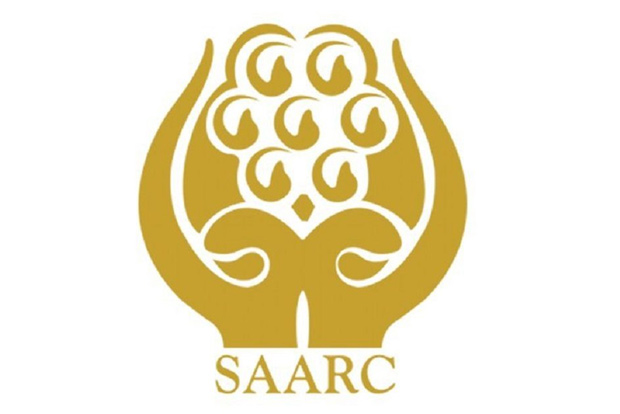Begin typing your search...
Nepal 'ready and very eager' to handover SAARC Chairmanship to Pakistan: Gyawali
Nepal, which is holding on to the Chairmanship of the SAARC grouping since 2014, is "ready and very eager" to handover the position to Pakistan, Foreign Minister Pradeep Kumar Gyawali said on Friday, hoping that New Delhi and Islamabad can sort out their differences through negotiations, keeping in mind the challenges facing the region.

Kathmandu
The minister also assured India that Nepal will not allow its soil to be used against any of its neighbours and the Himalayan country will not participate in any great games.
"Nepal is not only ready but very very eager and in hurry to handover this Chairmanship of SAARC (to Pakistan) because we have been carrying this baggage for more than four years," Gyawali told a group of visiting Indian journalists at a briefing on 'Sagarmatha Sambad' at the Nepalese Foreign Ministry here.
"So we want to look at the summit at the earliest," he said and hoped that there will be some meeting point to mitigate the differences and organise the next summit.
The last SAARC Summit in 2014 was held in Kathmandu, which was attended by Prime Minister Narendra Modi.
The 2016 SAARC summit was to be held in Islamabad. But after the terrorist attack on an Indian Army camp in Uri in Jammu and Kashmir on September 18 that year, India expressed its inability to participate in the summit due to "prevailing circumstances".
The summit was called off after Bangladesh, Bhutan and Afghanistan also declined to participate in the Islamabad meet.
Gyawali said that India and Pakistan can sort out their differences through negotiations, keeping in mind the challenges facing the region.
"Nepal strongly believes in regionalism and multilateralism. So, we all know there are problem but no problem is immune that cannot be solved through negotiations or discussions," he said.
In the last three years, India has been distancing itself from the SAARC, citing security challenge facing the region from terror networks based in Pakistan, which is also a member of the grouping.
Gyawali said the leaders of all SAARC countries, including Prime Minister Modi and his Pakistani counterpart Imran Khan, have been invited to 'Sagarmatha Sambad' and Nepal would be happy to host all the regional leaders and provide them some moments where they can discuss informally how can they develop the regional cooperation.
"It will be a fantastic idea" for all SAARC leaders to be present at the Saagarmatha, he said.
The Sambad (dialogue) is named after the world's tallest mountain Sagarmatha (Mt. Everest) which is also a symbol of friendship, he added.
"We have some common identities but what is ironical is that this region is least integrated in terms of physical connectivity, digital connectivity, economy, trade and many more. The largest chunk of the poverty is a big concern for the policy makers and governments in this region," Gyawali said.
In December last, Prime Minister Modi said that India's efforts for greater collaboration among the SAARC countries have repeatedly been challenged with threats and acts of terrorism, in an oblique reference to Pakistan.
In a letter to the SAARC secretariat to mark the founding day of the bloc on December Prime Minister Modi said all countries in the region should take effective steps to defeat the scourge of terrorism and the forces which support it.
Such efforts, he said, would generate greater trust and confidence to build a stronger SAARC.
Pakistan Prime Minister Khan, in his message on the 35th SAARC Charter Day, expressed the hope that the hiatus created in SAARC's continuous progression would be removed.
Khan said Pakistan believes the effective and result-oriented regional cooperation can only be achieved by adhering to the cardinal principles of sovereign equality and mutual respect as enshrined in the SAARC Charter.
SAARC summits are usually held biennially and hosted by member states in alphabetical order. The member state hosting the summit assumes the Chair of the Association.
On December 8, 1985 at the first SAARC Summit in Dhaka, the leaders of the seven South Asian states - the Maldives, India, Bhutan, Pakistan, Nepal, Bangladesh and Sri Lanka - signed a charter to establish the South Asian Association for Regional Cooperation (SAARC). Afghanistan became the eight SAARC member in 2007.
Visit news.dtnext.in to explore our interactive epaper!
Download the DT Next app for more exciting features!
Click here for iOS
Click here for Android
Next Story



